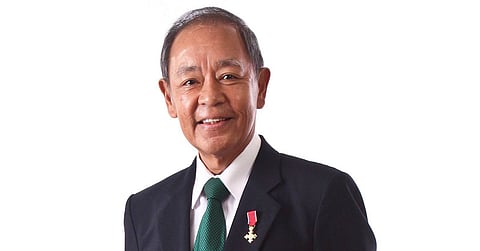Cursing darkness not Bobby’s fancy
Total electricity coverage is in the horizon for the country as it is now 98 percent in terms of households which are freed from the curse of darkness.
Among the individuals that should be hailed as pioneers in connecting remote areas to the energy backbone is an unlikely technocrat who wanted to work entirely in the background.
Philippine Veterans Bank chairperson Roberto de Ocampo, OBE, who was the finance secretary of the late President Fidel Ramos, has the distinction of being among the pioneers of the country’s rural electrification program.
In the early 70’s during the term of the late President Ferdinand Marcos Sr., then executive secretary Alejandro Melchor heard through his father, war veteran Jose de Ocampo, “because both of them were on the board of Development Bank of the Philippines” of Roberto who completed his education from topnotch Western schools.
At the time, Melchor learned about De Ocampo’s “crazy son, who was looking for a challenge.”
Melchor offered De Ocampo the job of being one of three people to spearhead the implementation of the rural electrification program of the Philippines.
A law had been introduced by then Senator, and former vice president, Emmanuel Pelaez to bring electricity to the far-flung communities which was hardly implemented.
“And so we were tasked, and my part of it was to set up the management financial systems for what was going to be the rural, electrical operators of the country.
At that time, only 30 percent of the country had electricity. And 70 percent of those with power connections were all in the Meralco franchise area.
“All you had to do on those days, was drive out of Manila for an hour or so, and you’d already be in a place that only had electricity between 6 p.m. and 10 p.m. and if you go farther let’s say in Mindanao then things were worse, so that’s how I got started in public service looking for a challenge and getting a job whose pay was lower than my father’s driver,” De Ocampo recounted.
Driven by life’s challenges
Despite the meager pay and the compensation mismatch for his overseas diplomas, De Ocampo found a huge challenge through the program to give the majority of Filipinos access to electricity.
The adventurous side of De Ocampo was behind the zest in tackling the government challenge. “It was exciting because I ended up going to every nook and cranny of the country,” he said.
Among the new experiences from his job is sleeping in the guest house, “on a kawayan type of bed.”
“All of this was exciting to me. The result was that I ended up with my first award, which was the Ten Outstanding Young Men when I was 28. I became the youngest administrator of a national program. So that’s how (my stint in public service) started.”
From then on, De Ocampo collected distinctions such as the Global Finance Minister of the Year, the Philippine Legion of Honor, the Association of Development Finance Institutions of Asia Pacific Man of the Year, the Most Excellent Order of the British Empire, and the Chevalier of the Legion of Honor of France.
During the martial law years, however, De Ocampo took a break from the government and ended up with the World Bank where he stayed for about 10 years.
“And to some extent, I thought that was it. I was just going to be a World Bank guy for the rest of my life,” he said.
The call of another adventure, however, beckoned to De Ocampo following the 1986 revolt when President Cory Aquino appointed him as chairperson of the Development Bank of the Philippines (DBP).
“I had to make a choice. I can’t be both the DBP chairperson and the World Bank guy. Well, as you know, the rest is history. I ended up choosing to stay in the Philippines and help out and eventually, President Ramos succeeded, and my public services continued,” he explained.
De Ocampo said he did not regret his decision. “It’s better to have a life lived for in the service of others. It is more meaningful than trying to just get by.”
He then brought his experience in bringing light, in a way, to the world stage as chairperson of the Asia Pacific Economic Cooperation Forum finance ministers during the period when the financial crisis erupted.
“That’s 1996 and we crafted together with other finance ministers, including that of the United States, who at the time was Larry Summers, what was then called the Manila framework, which outlined how the region will get out of the crisis and how do we avoid getting hit again in the future. So it’s been an exciting time again,” according to De Ocampo.
Sizing up the performance of the Ramos administration amid a regional crisis, De Ocampo gave the late president a thumbs up.
“He led by example. Nobody worked harder than him. so you had to keep up. But aside from that, he was not a politician. So we weren’t spending an inordinate amount of our time manufacturing photo ops and, and sound bites. He had one focus Philippines 2000. The question was, where do you want to see the Philippines by the year 2000?”
He said that each Cabinet member was tasked to contribute to the whole administration’s effort. “So, even though he wasn’t a politician, he was adept at managing politicians, which is why if you think back, he’s the only president, I think, even up to now, that convened the Legislative-Executive Development Advisory Council almost weekly.”
Nowadays, De Ocampo continues with his mission of bringing enlightenment, this time among soldiers and their families who are the main patrons of the Philippine Veterans Bank.


